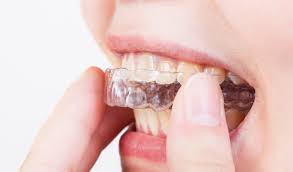Mouthguards are an essential piece of equipment that protect your teeth during sports, especially in contact sports such as football, basketball, hockey, and martial arts. They help absorb the force of impact, reducing the risk of oral injuries like broken or knocked-out teeth. In this article, we will explore how Mouthguards protect your teeth, the different types available, and how they contribute to your overall dental health while you play.
The Role of Mouthguards in Protecting Your Teeth:
Mouthguards are designed to cover your teeth and gums, acting as a shock absorber to protect your mouth during physical activities. They are essential in preventing injuries that could occur from sudden impacts, falls, or accidental collisions. By cushioning blows to the face, mouthguards minimize the risk of tooth fractures, dislocations, and soft tissue injuries.
- Impact Absorption: Mouthguards disperse the force of impacts, reducing the likelihood of tooth damage or jaw injury.
- Preventing Tooth Loss: By covering the teeth, they prevent direct trauma that could result in a tooth being knocked out.
- Protecting Soft Tissues: They also help shield your gums, lips, and cheeks from cuts and abrasions that can occur during contact sports.
Types of Mouthguards and Their Benefits:
There are several types of mouthguards available, each offering varying levels of protection, comfort, and cost. The right choice depends on your sport, preference, and budget. Understanding the types of mouthguards can help you make an informed decision.
- Stock Mouthguards: Pre-formed and ready to wear, these are inexpensive but tend to be uncomfortable and bulky.
- Boil-and-Bite Mouthguards: Made from thermoplastic material, these can be softened in boiling water and molded to fit your teeth for a better, custom-like fit.
- Custom Mouthguards: Designed by a dentist, these provide the best fit, comfort, and protection, though they come at a higher cost.
Custom Mouthguards: The Ultimate Protection for Athletes
While stock and boil-and-bite mouthguards offer basic protection, custom mouthguards are the most effective choice. Custom-fitted mouthguards are molded to your teeth by a dentist, ensuring they fit perfectly and provide superior comfort. These mouthguards are made specifically for your mouth, offering the best protection against impact while enhancing your performance during sports.
- Precise Fit: Custom mouthguards are tailored to your unique dental structure, providing a snug and secure fit.
- Enhanced Comfort: Because they are made to fit your mouth precisely, custom mouthguards are more comfortable to wear, allowing you to breathe and speak more easily.
- Maximum Protection: Custom mouthguards are designed to offer the highest level of protection against both tooth damage and jaw injuries.
How Mouthguards Reduce the Risk of Jaw Injuries?
In addition to protecting your teeth, mouthguards also play a critical role in reducing the risk of jaw injuries. When you take a blow to the face, the force can travel through the mouth and impact the jaw. A well-fitted mouthguard acts as a buffer, absorbing and distributing the impact to minimize damage to the jaw.
- Jaw Fracture Prevention: Mouthguards help reduce the risk of fractures or dislocations of the jaw caused by direct hits to the face.
- Minimizing Concussion Risk: By stabilizing the jaw and reducing the force of impact, mouthguards may also lower the risk of concussions, which are common in contact sports.
- Distributing Force: Mouthguards evenly distribute the force of an impact, preventing excessive stress on specific areas of the jaw.
Protecting Soft Tissues with a Mouthguard:
A blow to the mouth can cause damage to the soft tissues inside your mouth, including your gums, lips, and cheeks. Without a mouthguard, sharp impacts could result in cuts, bruising, or tears in these sensitive areas. Mouthguards act as a protective shield, keeping your soft tissues safe from abrasions during a collision or fall.
- Gum Protection: Mouthguards reduce the risk of lacerations to the gums, which can occur during sports-related impacts.
- Lip and Cheek Safety: They protect the inside of your lips and cheeks from getting caught between your teeth during high-pressure situations, preventing painful cuts.
- Preventing Ulcers: By covering the surfaces of the teeth, mouthguards can also reduce the likelihood of painful ulcers caused by direct contact with the teeth.
The Importance of Wearing a Mouthguard Consistently:
While Mouthguards provide excellent protection, it’s important to wear them consistently to ensure safety during all activities. Many athletes overlook the need for mouthguards during practice or warm-ups, but injuries can occur at any time. Consistent use of a mouthguard during all physical activity ensures maximum protection for your teeth and mouth.
- Wear During Practice and Games: Always wear your mouthguard, not just during games but also during practice and training sessions to minimize the risk of injury.
- Don’t Skip It: Skipping the use of a mouthguard, even in non-contact sports, can leave you vulnerable to unexpected accidents.
- Build a Habit: Make wearing a mouthguard part of your pre-game routine, so it becomes second nature to protect your teeth and jaw during all activities.
In conclusion, mouthguards are an essential tool for protecting your teeth and overall oral health during sports. They provide protection against tooth fractures, jaw injuries, and soft tissue damage, reducing the risk of long-term dental issues. Custom mouthguards, in particular, offer the best fit and protection, helping athletes perform at their best while keeping their teeth safe. Regularly wearing your mouthguard during practice and games ensures that you’re taking proactive steps to prevent injury and maintain your smile for the future. If you’re involved in any high-contact sports, investing in a mouthguard is one of the best decisions you can make for your dental health.





Comments